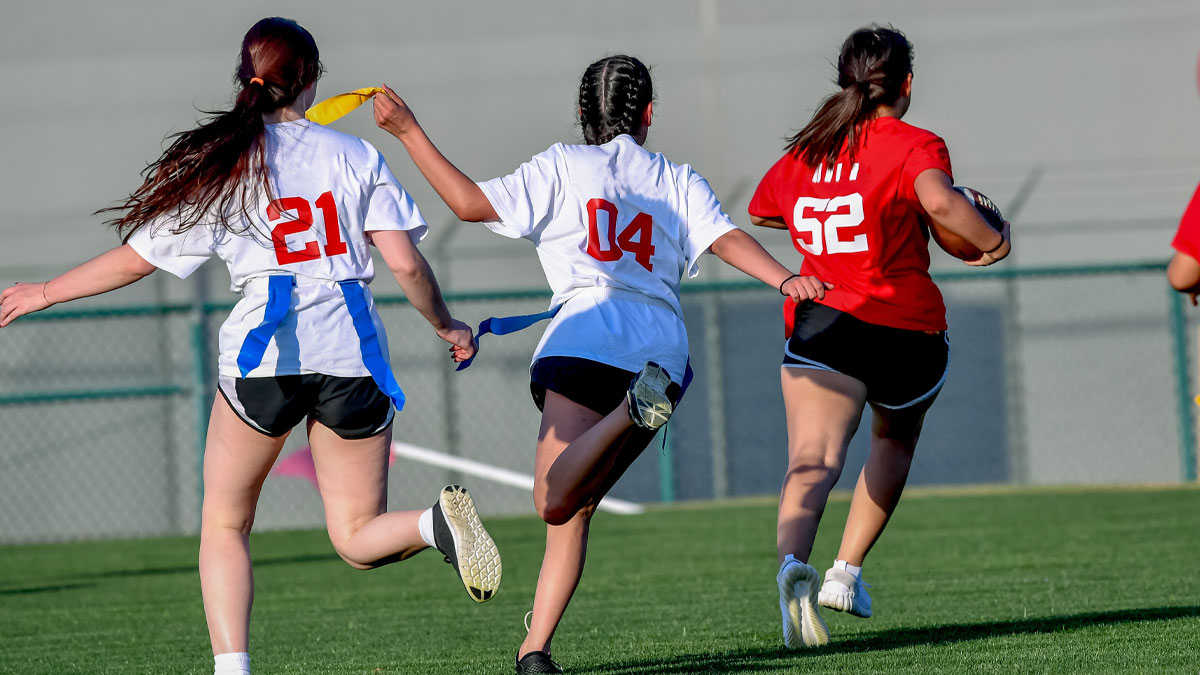
Coach Tells Teen To Change In The Bathroom Because She Makes Everyone Uncomfortable
Public changing rooms can be intimidating for teens. Many might be dealing with insecurities about their bodies, so, changing in a school locker room can take a lot of courage. Teens who have had surgical intervention of any kind might have even more insecurities about their bodies.
This 17 Y.O. breast cancer survivor wasn’t ashamed of her body and used to change in front of her peers. But, when her coach asked her to start doing it in a separate bathroom, she felt incredibly hurt and singled out. To validate her feelings, she sought opinions online.
A cancer survivor teen refused to hide in the bathroom to change clothes when her coach asked her to
Image credits: Allan Mas / Pexels (not the actual photo)
Apparently, other girls found her mastectomy scars “scary,” but the request hurt the teen immensely
Image credits: bialasiewicz / Envato Elements (not the actual photo)
Image credits: Business-Parking-495
Image credits: freepik / Freepik (not the actual photo)
Teen cancer survivors are at risk of bullying in schools
Breast cancer is rare in teenage girls, but it still happens. Researchers claim that one teen in a million is a patient of breast cancer. When it comes to all forms of cancer, around 5,000-6,000 adolescents are diagnosed with cancer every year in America.
Going through cancer, even without any surgical intervention, can significantly alter a teenager’s body image. Adolescence is the period when an individual is figuring out their identity, and cancer comes with a lot of unwanted physical changes.
One study found that patients’ body image experiences largely depended on how others perceived them. And sometimes, people’s perceptions can be on the bullying side. In fact, in one study, 44% of teen cancer survivors said they experience some form of bullying at school. The most common forms of bullying were teasing and social exclusion.
St. Jude Children’s Hospital notes that teens and children with signs of cancer treatment such as surgery scars are at risk for bullying. They warn about the effects of bullying, such as depression, anxiety, low self-esteem, and academic problems.
If a child or a teen is experiencing bullying because of their diagnosis or treatment, St. Jude’s urge them to report such behavior to teachers or administrators. Mental health professionals also can help one deal with bullying, but support from peers, family, and friends is also important.
One way or another, such a problem needs to be addressed, and the people discriminating against person for their cancer diagnosis or treatment should be held accountable.
Image credits: cottonbro studio / Pexels (not the actual photo)
Adults have the power and the means to stop bullying among teenagers
Many teens are familiar with bullying in high school locker rooms. According to the National Center for Educational Statistics, 12% of American students report being bullied in the bathroom or the locker room.
Teen expert John Mayer, Ph.D., claims that most times, the authority of a coach is enough to stop any bullying inside changing rooms. In this story, however, the coach was one of the people discriminating against the teen, so that solution is out of the window.
Oftentimes, teens themselves are afraid to tell anyone else about the bullying they’re experiencing for fear of being branded as “a snitch.” Mayer recommends parents help their teenagers understand that this is not the case. If needed, parents should also go higher up the chain over the coach and let the school administration know of any bullying that is happening.
Dr. Deinera Exner-Cortens, PhD, a researcher with the Faculty of Social Work at the University of Calgary, says that the key to bullying prevention is to understand where it is coming from. “It’s really important for adults to have a sense of [the social] dynamics and to intervene when they see they’re being abused. It is not the job of the child who’s being bullied.”
“That can mean intervening. It can mean mentoring. It can mean talking about what bullying is. It can mean setting up what we call positive social architectures,” Exner-Cortens added. “So, knowing the social dynamics and structuring groups accordingly. But that kind of leadership does come from adults.”
Commenters showed the girl support, calling out the discrimination from both her peers and the coach
Poll Question
Thanks! Check out the results:
"If you don't like it, then don't look?" And what a hero the coach is, siding with the bullies and making her feel even WORSE. The whole situation is absolutely disgusting. And what's even sadder is that it somewhat matches my own teenage experience of being subjected to judgemental stares and comments from other girls in the changerooms. Being made to hate your own body starts incredibly early in life. In my case, I started thinking of myself as "fat" and awkward when I was EIGHT. So the highschool thing was the next stage. Now I'm an adult who doesn't even like to look in the mirror.
Sometimes I think these short stories are practice for people practicing the English language?
People don't like people who are different. All we can do is stand up to those who discriminate. Personally I'd say, this is what treated breast cancer looks like. To see untreated go to the cemetery. I'd rather have my scare so suck it up
Yeah if she can go through a double mastectomy at 16 they can handle seeing some scars or removing THEMSELVES from the the communal changing room. Ridiculous.
Load More Replies..."If you don't like it, then don't look?" And what a hero the coach is, siding with the bullies and making her feel even WORSE. The whole situation is absolutely disgusting. And what's even sadder is that it somewhat matches my own teenage experience of being subjected to judgemental stares and comments from other girls in the changerooms. Being made to hate your own body starts incredibly early in life. In my case, I started thinking of myself as "fat" and awkward when I was EIGHT. So the highschool thing was the next stage. Now I'm an adult who doesn't even like to look in the mirror.
Sometimes I think these short stories are practice for people practicing the English language?
People don't like people who are different. All we can do is stand up to those who discriminate. Personally I'd say, this is what treated breast cancer looks like. To see untreated go to the cemetery. I'd rather have my scare so suck it up
Yeah if she can go through a double mastectomy at 16 they can handle seeing some scars or removing THEMSELVES from the the communal changing room. Ridiculous.
Load More Replies...
 Dark Mode
Dark Mode 

 No fees, cancel anytime
No fees, cancel anytime 






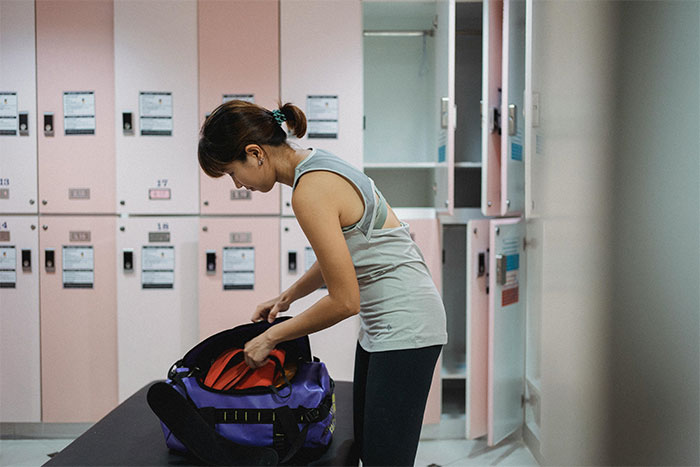

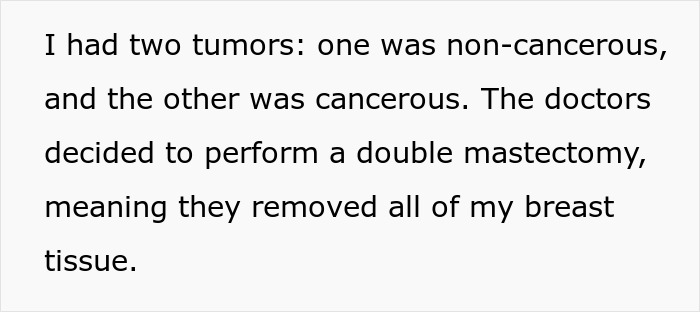
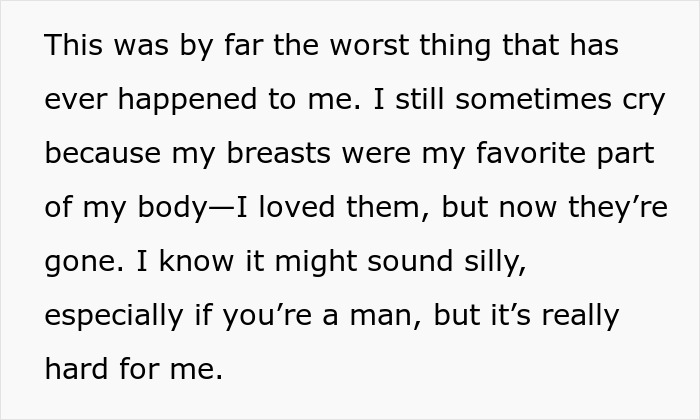


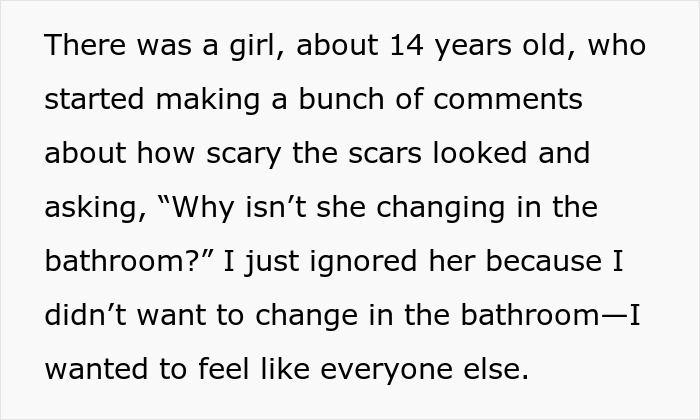
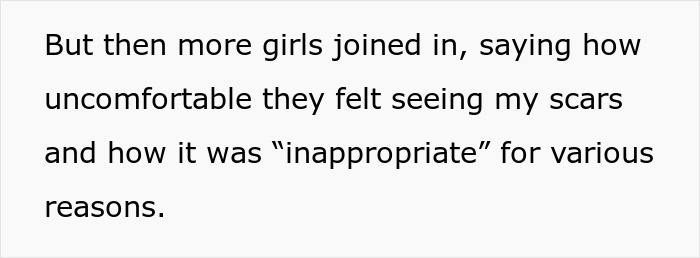
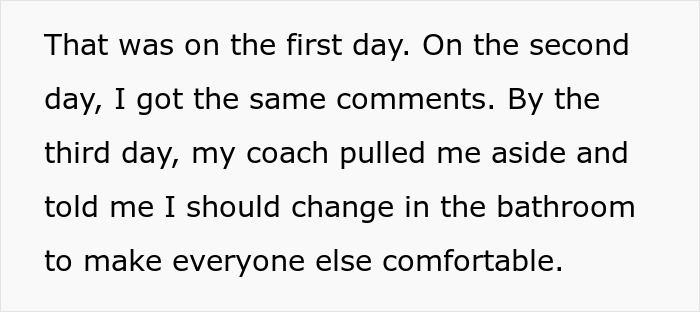

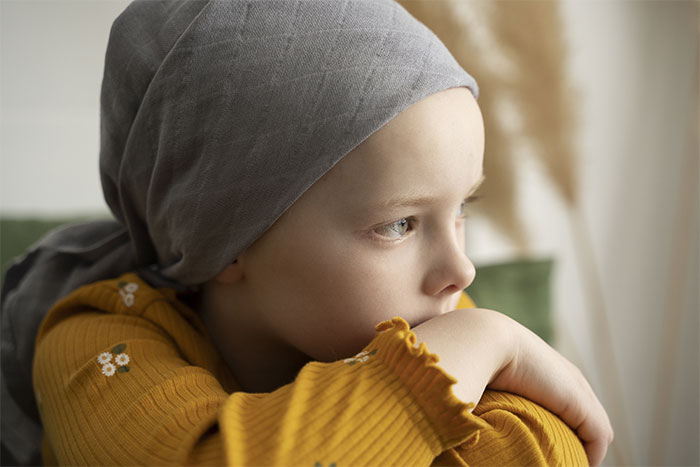

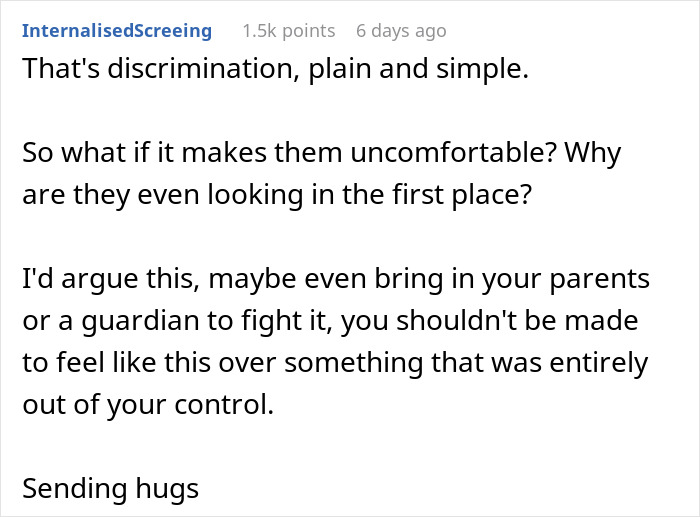
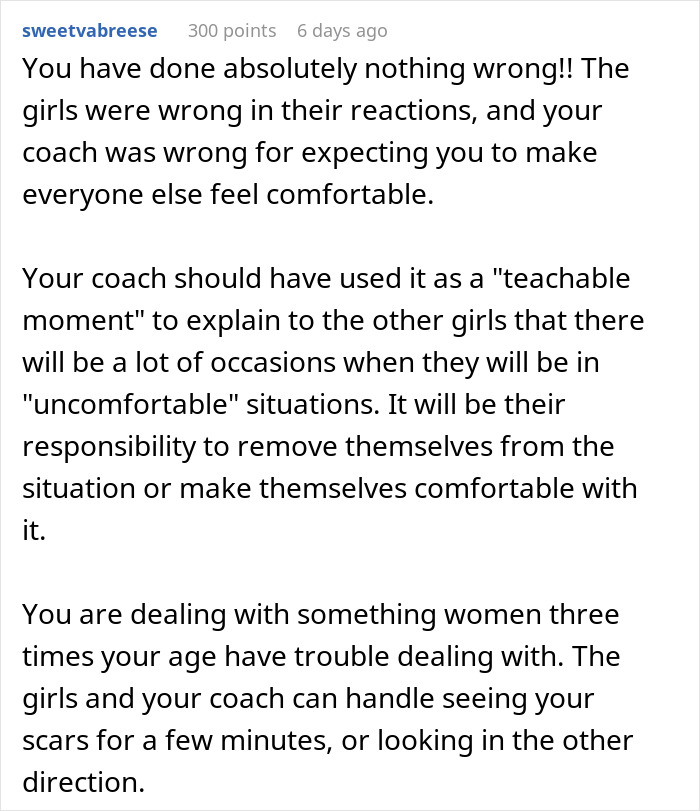
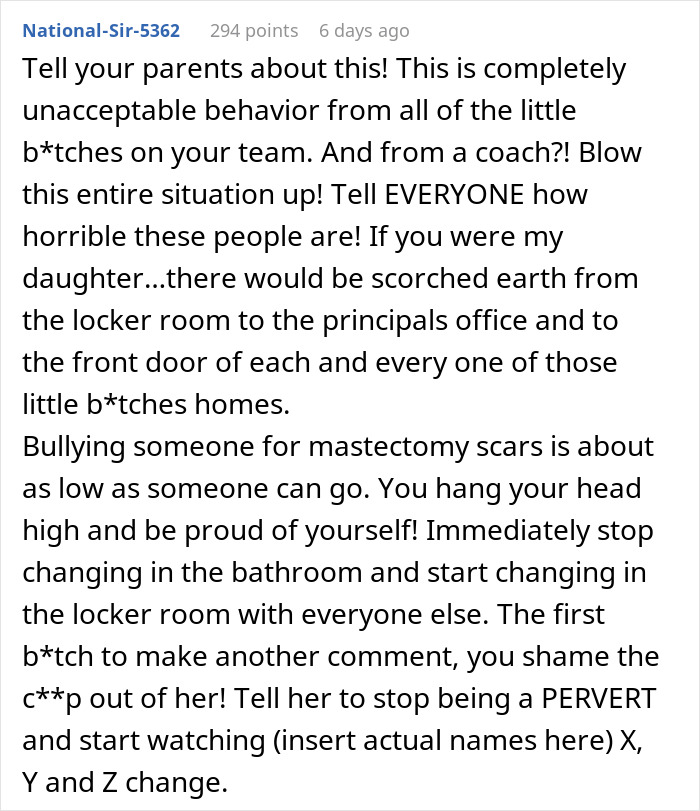
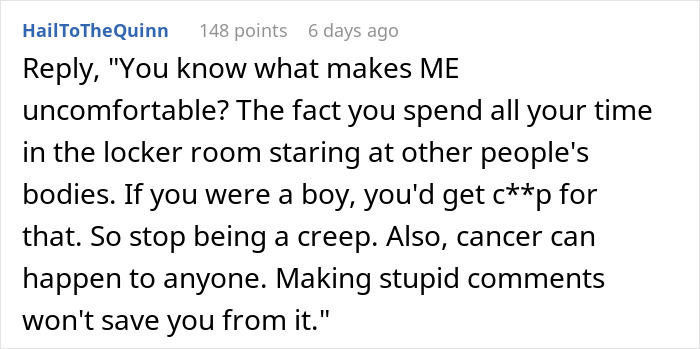
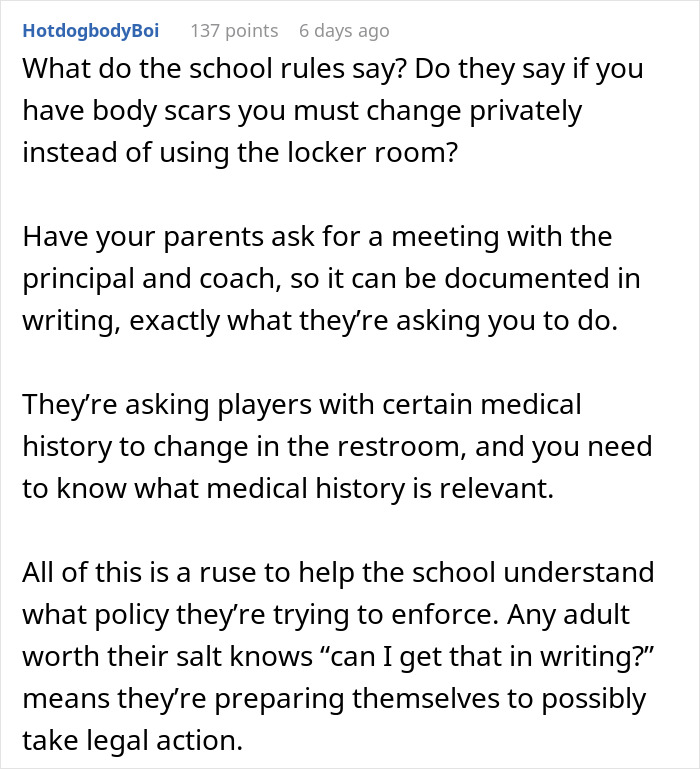
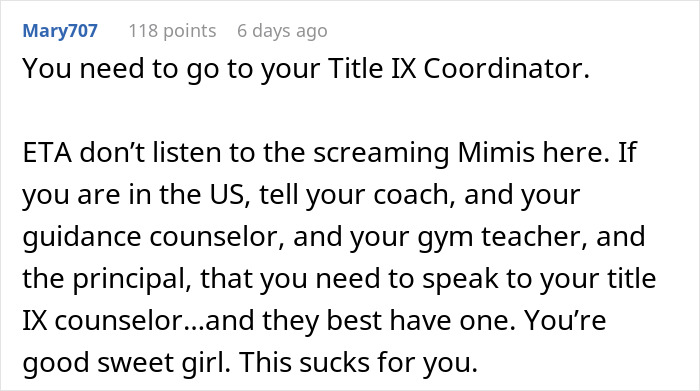

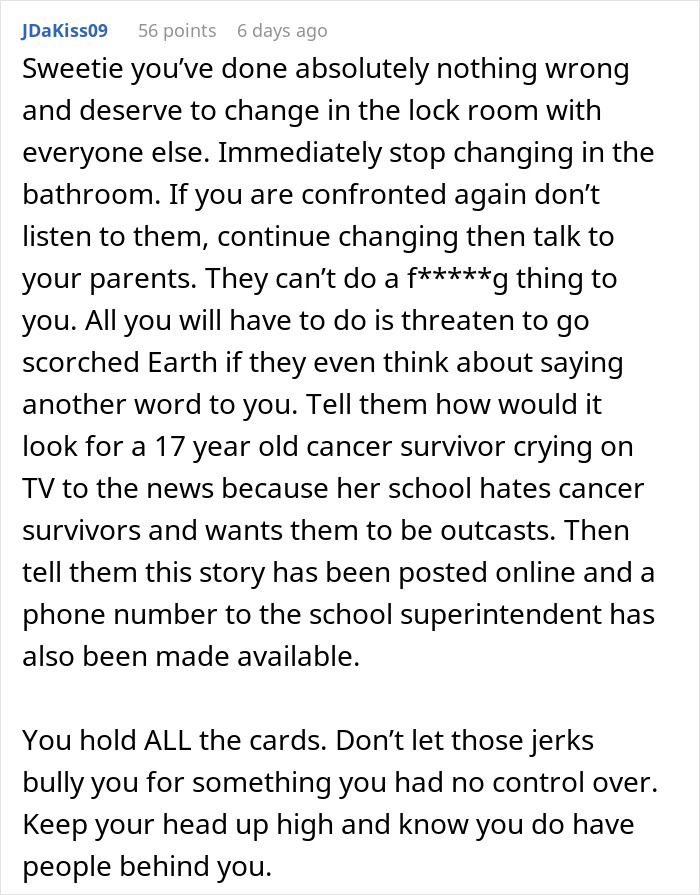
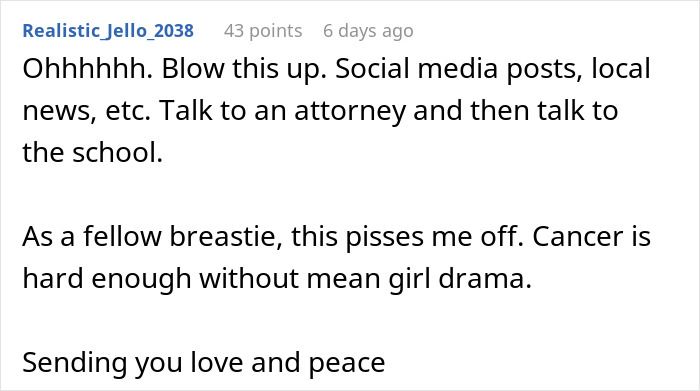
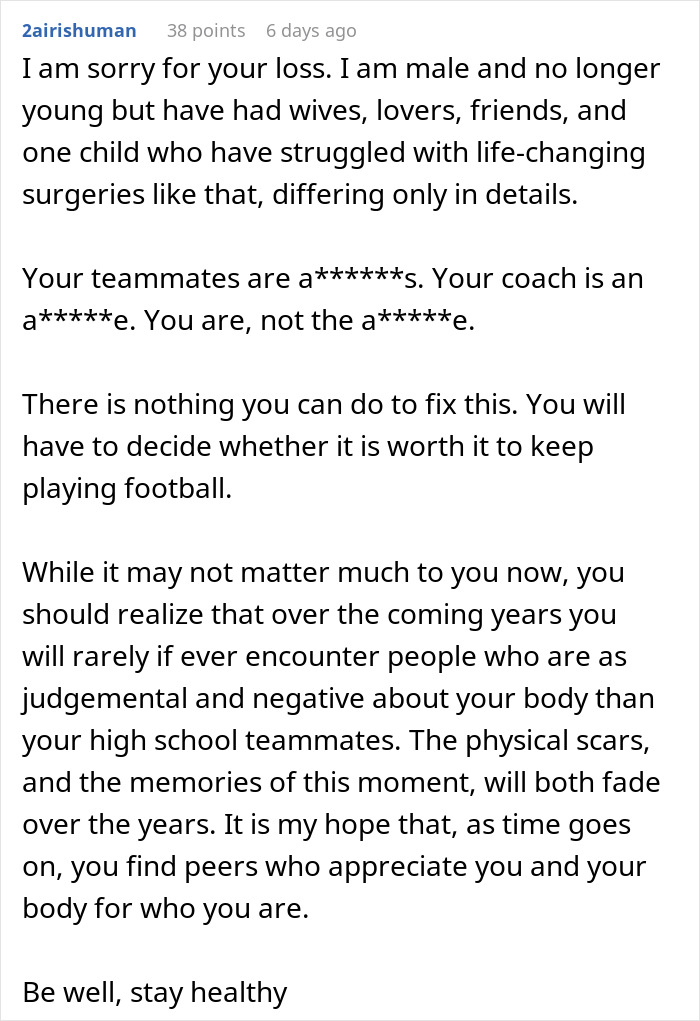
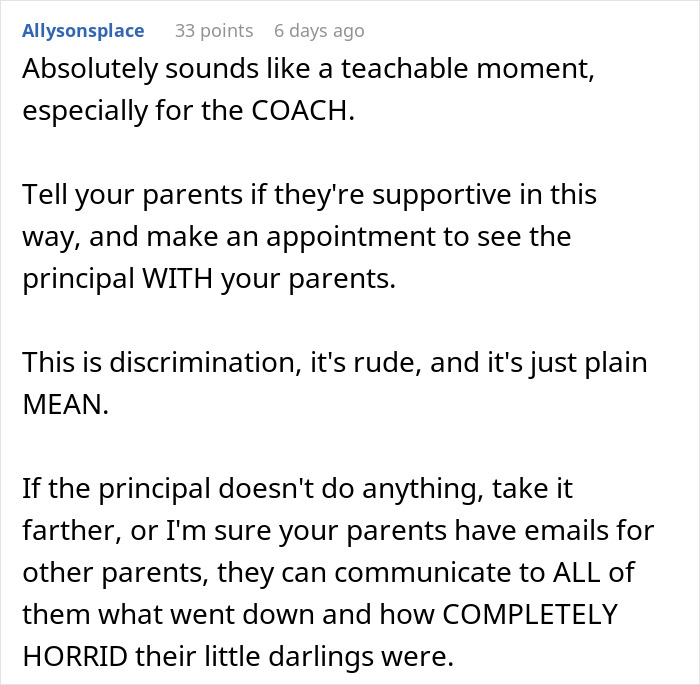
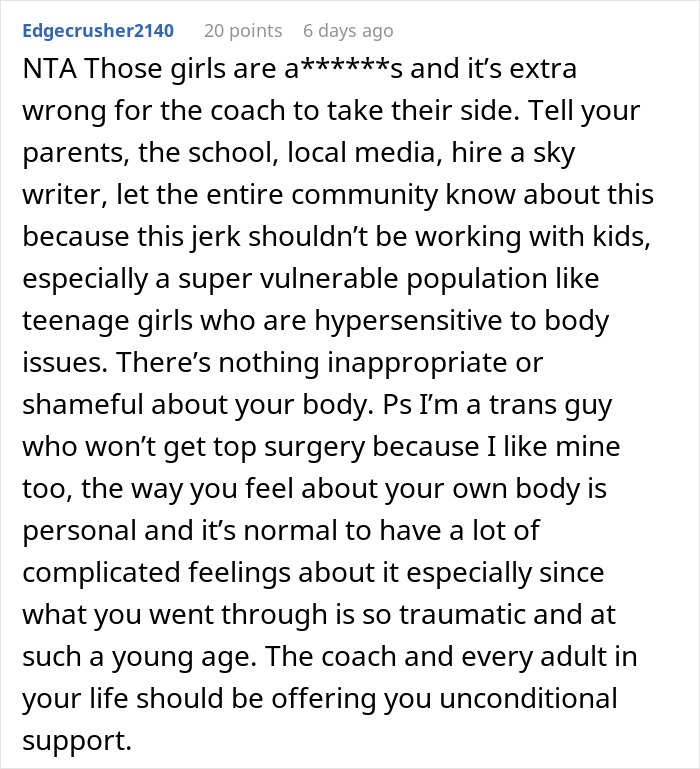


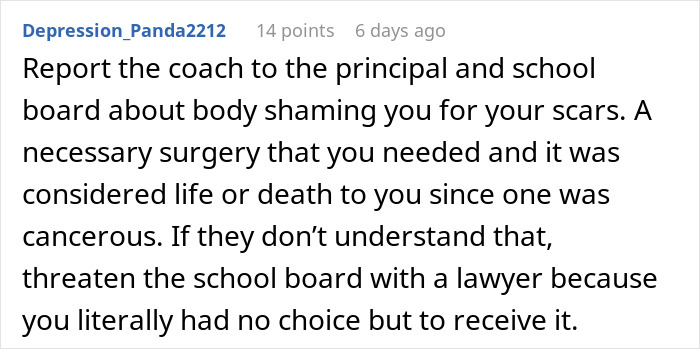








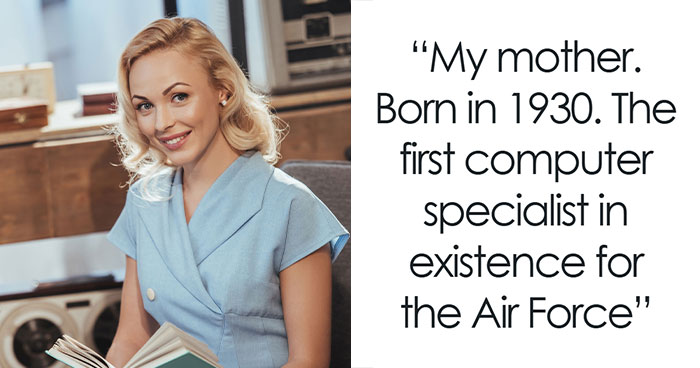

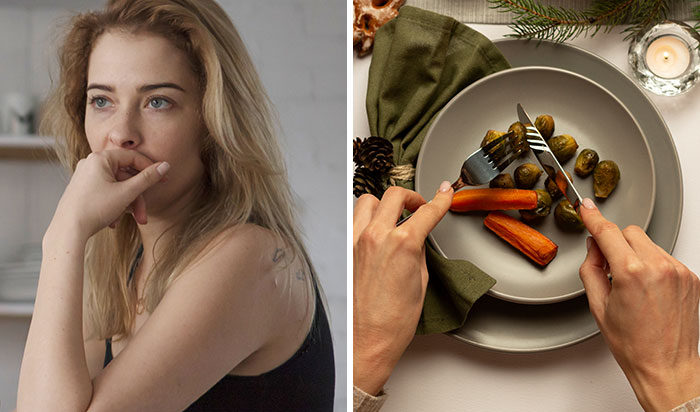
































28
71